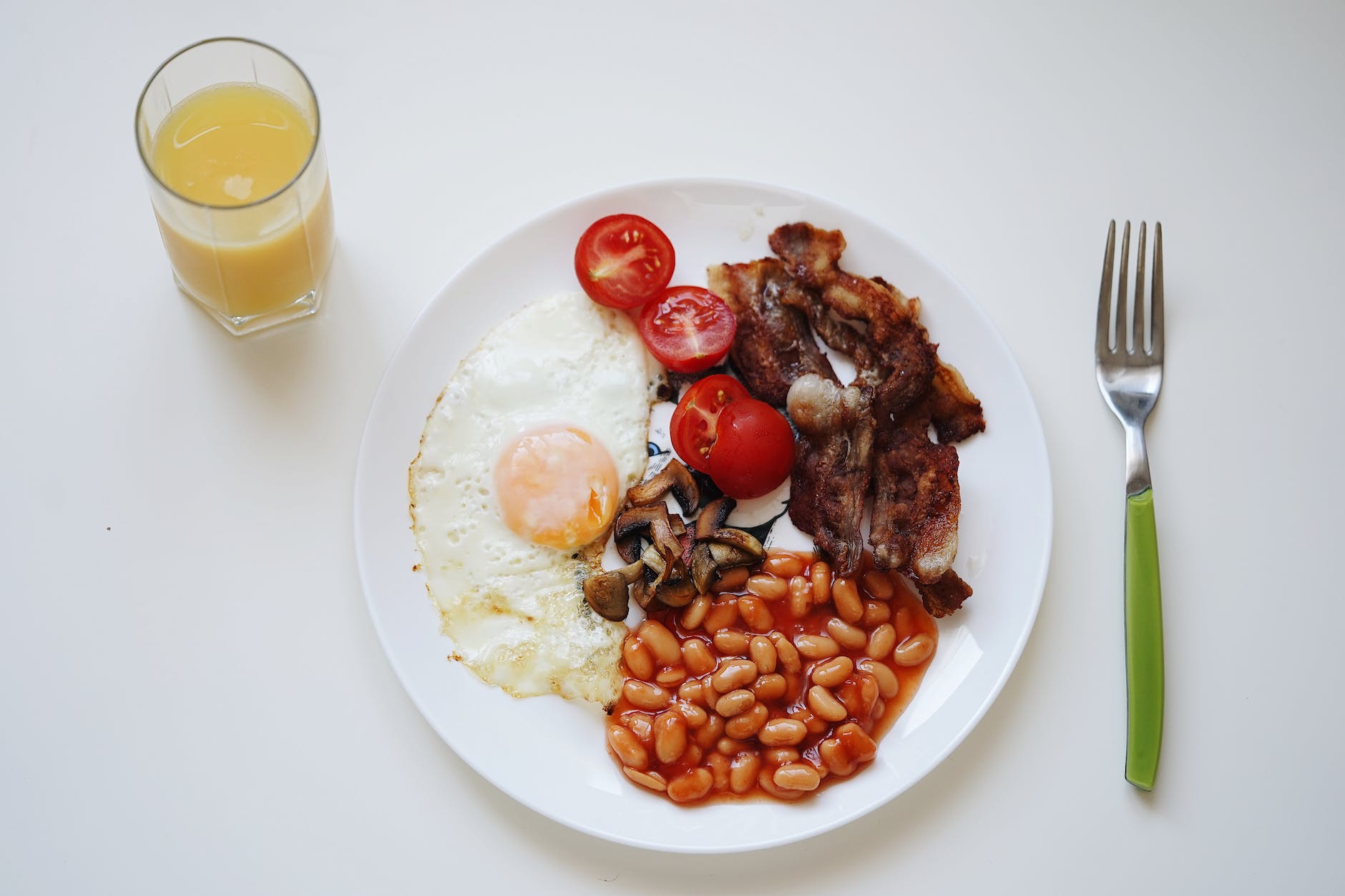
Adapted from Nutrients Volume 15 June 25 2023. Effects of consuming once equivalent portions of animal v plant based protein foods, as defined by the Dietary Guidelines for Americans on Essential amino acid bioavailability in young and older adults: Two cross over randomised controlled trials. Gavin Connolly et al. Department of Nutritional Science. Purdue University, West Lafayette, Indiana.
The 2020-25 Dietary Guidelines for Americans recommend that protein foods are consumed as part of a healthy dietary pattern. This includes animal based protein such as red meat, poultry, fish and eggs and plant based. These include soy products, beans, peas, lentils, nuts and seeds.
One ounce of protein equivalents are one whole egg, one ounce of meat, 0.25 cups of beans, or 0.5 ounces of nuts.
Protein foods differ up to three fold in metabolizable energy and macronutrient contents. For example, one ounce of pork contains 7g of total protein and one oz of almonds contains 3g of total protein. Protein quality can be defined as the ability of a dietary protein to provide adequate amounts and proportions of essential amino acids (EAA). These can then be used by the body to make proteins and maintaining and growing body tissues.
Animal proteins contain all the EAA whereas plant proteins, apart from soy lack one or more of them. This is why vegans and vegetarians are urged to eat a wide variety of plants.
Research has previously found that in young adults, animal protein sources resulted in better whole body net protein balance (anabolic response) compared to plant based foods. Up till the study presented in this paper the protein balance had not been assessed in older adults.
The study group of the young adults ranged in age from 22-39. The study of the older adults ranged from 55-75 years. BMI was 22-35, stable weight, not pursuing moderate to vigorous exercise more than 3 hours a week, not ill, non smokers, not diabetic, not pregnant or lactating, and willing to not exercise for 48 hours before the testing days.
Each participant completed four 300 minute trials. These were randomised, investigator blinded and of cross over design. The trial meals were two oz equivalent meals of 1. unprocessed pork loin, 2. scrambled whole eggs. 3.black beans and 4. raw sliced almonds. Blood samples were taken at various timed intervals on 8 occasions after the meals.
Of the young adults 30 completed the study. There were equal numbers of men and women. Average age was 26, average BMI 26.4. Ethnicity was mixed.
Of the older adults 25 completed the study. 15 women and 10 men. Average age was 64.2, BMI 26.1 and again there were mixed ethnicities.
The results showed that the pork and whole egg meals resulted in greater essential amino acid bioavailability compared to the beans and almonds. This was true for both the young and older adults. This was a similar result to a previous study where pork, whole eggs, beef sirloin, tofu, kidney beans, peanut butter and mixed nuts were compared.
There were no differences in the protein bioavailability between the younger and older groups.
My comment: Apart from the very sensible advice given to vegans and vegetarians about consuming a wide variety of plants, this study would demonstrate that eating enough plant protein, aiming for a bit more than you may expect from plant protein estimates, would be potentially helpful in maintaining healthy body composition.

